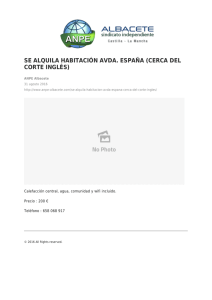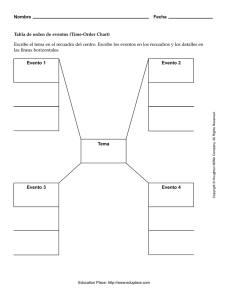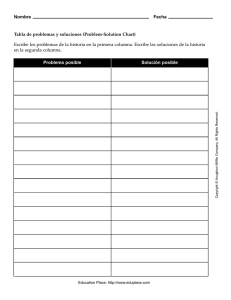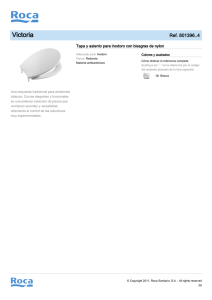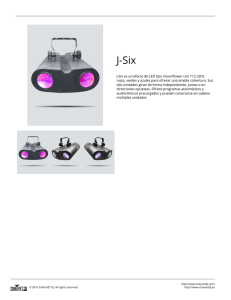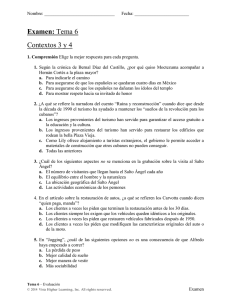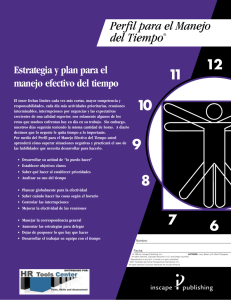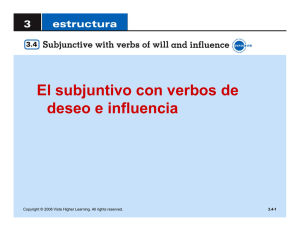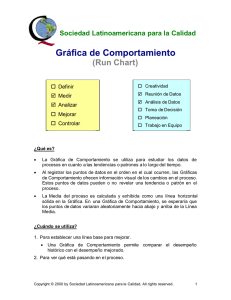El participio pasado como adjetivo
Anuncio
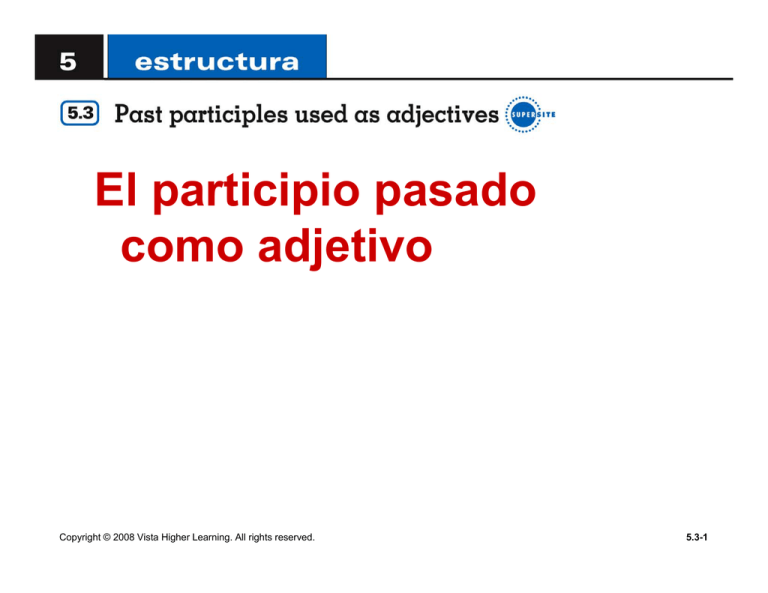
El participio pasado como adjetivo Copyright © 2008 Vista Higher Learning. All rights reserved. 5.3-1 Verbos Adjetivos Aburrirse aburrido Afectar afectado Cansarse cansado Cerrar cerrado Enojarse enojado bored affected tired closed angry/mad Enamorarse enamorado in love Preocuparse preocupado Copyright © 2008 Vista Higher Learning. All rights reserved. Traducción (adjetivos) worried 5.3-2 Both Spanish and English have past participles. The past participles of English verbs often end in -ed (to turn turned), but many are also irregular (to buy bought; to drive driven). Copyright © 2008 Vista Higher Learning. All rights reserved. 5.3-3 In Spanish, regular -ar verbs form the past participle with -ado. Regular -er and -ir verbs form the past participle with -ido. Copyright © 2008 Vista Higher Learning. All rights reserved. 5.3-4 ¡Atención! The past participles of -er and -ir verbs whose stems end in -a, -e, and -o or carry a written accent mark on the i of the -ido ending. Copyright © 2008 Vista Higher Learning. All rights reserved. 5.3-5 In Spanish, as in English, past participles can be used as adjectives. They are often used with the verb estar to describe a condition or state that results from an action. Like other Spanish adjectives, they must agree in gender and number with the nouns they modify. Copyright © 2008 Vista Higher Learning. All rights reserved. 5.3-6 ¿Cierto o falso? El libro está cerrado. La cama está hecha. La mesa no está puesta. Copyright © 2008 Vista Higher Learning. All rights reserved. 5.3-7 El espejo está roto. La tienda está abierta. Los niños están despiertos. Copyright © 2008 Vista Higher Learning. All rights reserved. 5.3-8 La habitación está desordenada. La chica tiene las sandalias puestas. El niño no está acostado. Copyright © 2008 Vista Higher Learning. All rights reserved. 5.3-9 Indica la forma correcta del participio pasado de estos verbos. hablado 1. hablar ______ 5. escribir _____ 9. correr _____ 2. beber _____ 6. cantar _____ 10. leer _____ 3. decidir _____ 7. oír _____ 11. ver _____ 4. romper _____ 8. traer _____ 12. hacer _____ Copyright © 2008 Vista Higher Learning. All rights reserved. 5.3-10
